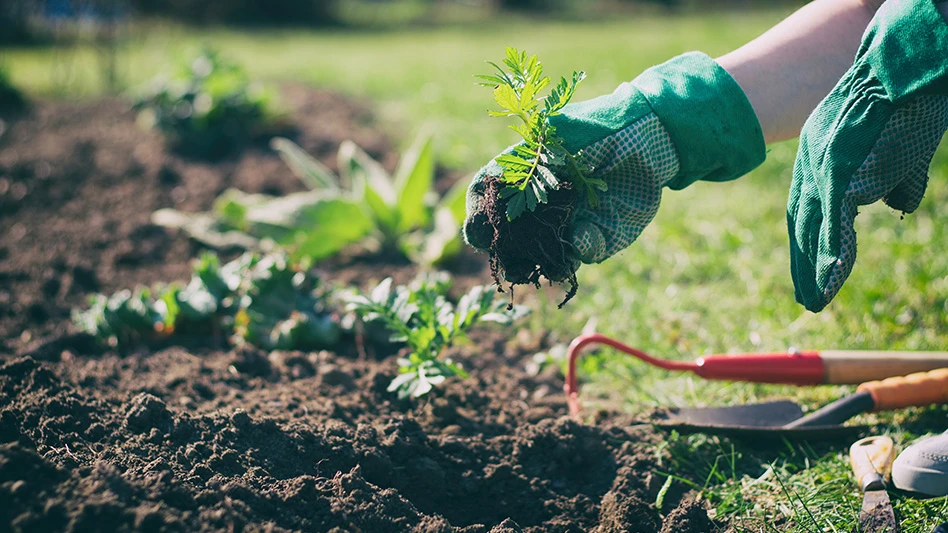
For more than two decades Mountain States Wholesale Nursery in Litchfield Park, Ariz., has devoted a portion of its growing space to plants most people don’t want to see “up close and personal.”
That’s because these plants, primarily natives that thrive in the desert climes of the Southwest, ultimately wind up growing outside the fairways of golf courses. Those who play the game realize that the “rough” and “OB” (out of bounds) – two places where you’ll frequently find Mountain States’ plants – are two places where you don’t want to hit your golf ball.
“Yeah, if you are out of bounds you will see a lot of our plants,” confirmed Bart Worthington, Mountain State’s general manager. “Many of our plants are just blended into the native desert landscape.”
Fortunately, another area to see Mountain States’ plants would be around the tee boxes, where specimen plants are often used, as well as more colorful perennials and shrubs. Worthington said his company has sourced a range of plants – hardy and pretty – to golf course customers since the mid 1980s. “We have supplied numerous golf courses through the years – TPC courses, Del Webb\Pulte Anthem courses, Dove Mountain, Talking Stick, to name a few,” he said. “Our relationships started by working with the golf course designers/architects.”
The clientele Worthington noted makes for an impressive resume – golf-wise.  Mountain States Wholesale Nursery is a source of native plants, perennials and shrubs for the picturesque Dove Mountain golf course in Marana, Ariz.
Mountain States Wholesale Nursery is a source of native plants, perennials and shrubs for the picturesque Dove Mountain golf course in Marana, Ariz.
TPC stands for Tournament Players Club; these are the courses that appear on television on the weekends, challenging the pros.Del Webb/Pulte Anthem courses are located in high-end retirement communities. The entire list shouts “Big Buck Potential” for companies that strike deals with the golf country clubs to provide products or services.
And – here’s the retail/landscape hook – in the case of garden centers that work with Mountain States, there’s also the prospect that people who play the various courses might become enamored with what they see and decide to translate “golf chic” to their own landscapes.
“Players of these courses do get ideas from the plants displayed,” Worthington said.
While Mountain States supplies the plants, it’s the golf course architects and superintendents who decide what they want to do with them, so independent retailers also could establish relationships there to help in the “translation” process.
Worthington said relationships are key to the whole grower-golf course-landscaper-retailer dynamic. “We do try to maintain relationships with the golf course superintendent after the install,” he said. “Superintendents move around, so it is important to stay in touch with them, because they can have influence with golf course owners.”
Worthington said a golf course project isn’t that different from what a retail or landscape customer might do in his or her own yard – except for the fact that most yards don’t span 7,000 yards, complete with “out” and “in” configurations.
“There really is not much difference,” Worthington said. “The plant palette is the same. In Arizona, we supply Encelia, Ambrosia [deltoidea, dumosa], Prosopis, Parkinsonia, Ericameria, Dasylirion, yucca and agave. But we don’t just grow native plants, there are many drought-tolerant plants that are non-native, but blend into the design perfectly.”
In fact, if you want to see for yourself, just follow wayward golf balls.
For more: Mountain States Wholesale Nursery, (800) 840-8509; www.mswn.com


Explore the April 2010 Issue
Check out more from this issue and find your next story to read.
Latest from Garden Center
- NewGen Boxwood added to Proven Winners ColorChoice line
- Terra Nova releases new echinacea variety, 'Fringe Festival'
- Sakata Seed America celebrates renovation of Cal Poly greenhouse complex
- American Horticultural Society names winners of 2025 AHS Book Awards
- American Horticultural Society announces winners of 2025 Great American Gardeners Awards
- Ask HR: We got a bad review after an employee having a bad day snapped at a customer. What do I do?
- How to cultivate connections with vendors
- The Growth Industry Episode 3: Across the Pond with Neville Stein







